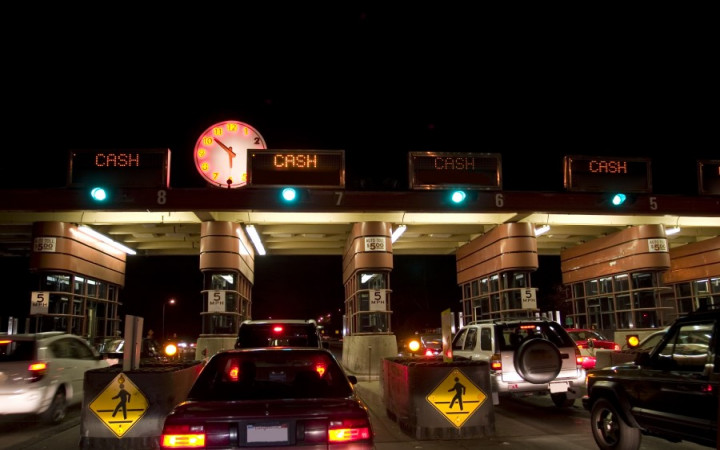Today’s Wonder of the Day was inspired by Wonder Team. Wonder Team Wonders, “Why do some roads have tolls?” Thanks for WONDERing with us, Wonder Team!
Do you love road trips? We do! There's nothing quite like piling into the family vehicle and hitting the open road in search of fun and adventure.
As you travel down interstate highways, there all sorts of fun games you can play. How many license plates from different states can you spot? It can also be tons of fun to turn on the radio and sing along to your favorite tunes.
If you're driving a long distance and are trying to get there as quickly as possible, you will probably travel along highways and interstates that allow you to travel faster and have fewer, if any stops. Of course, certain types of roads have occasional stops where you have to pay money to travel on the road.
These types of roads are called toll roads. Sometimes they also go by other names, such as tollway, turnpike or express toll route. To travel on a toll road, you have to pay a fee — called a toll. Sometimes you have to stop every so often to pay additional tolls to keep traveling on the toll road.
Most roads are built with local, state or national government money raised from taxes. Tolls are like a tax that applies only to the users of the toll road. Toll roads allow new roads to be built and maintained without raising taxes on the general public.
A toll road doesn't always stay a toll road forever, though. Sometimes tolls are removed on roads once the cost of construction has been recovered from the tolls collected.
You'll know you're on a toll road when you encounter a toll plaza. A toll plaza is a gated area where you have to slow down or stop to pay a toll to continue traveling on the road.
There are usually many available lanes with toll booths to keep traffic moving as quickly as possible. Some lanes may have people working the toll booths, so that you can pay with change or cash.
Other lanes — sometimes called express lanes — may be available to use if you have a special electronic pass attached to your vehicle. Special detectors sense your vehicle's electronic pass and charge an account, such as a credit card or a bank account, which you have connected to your electronic pass.
Express lanes are especially handy for people who commute on toll roads. These lanes allow commuters who travel the toll road daily to avoid stopping and dealing with paying by cash or change. Instead, they can zip through and their tolls are electronically deducted from a connected account.




